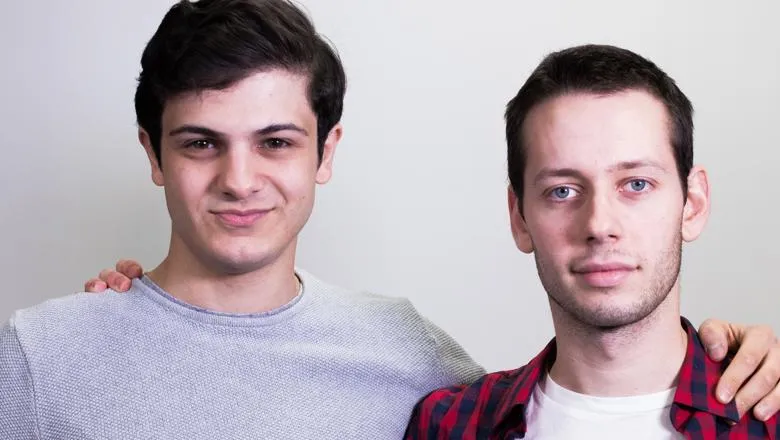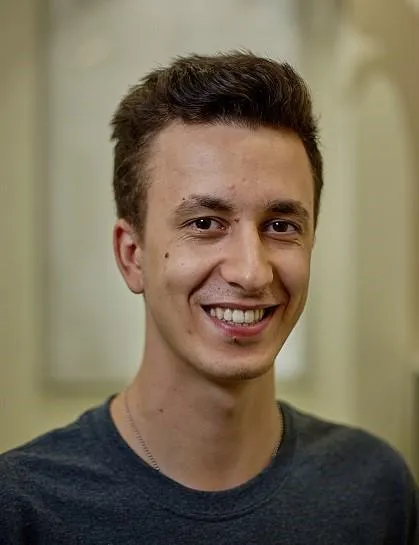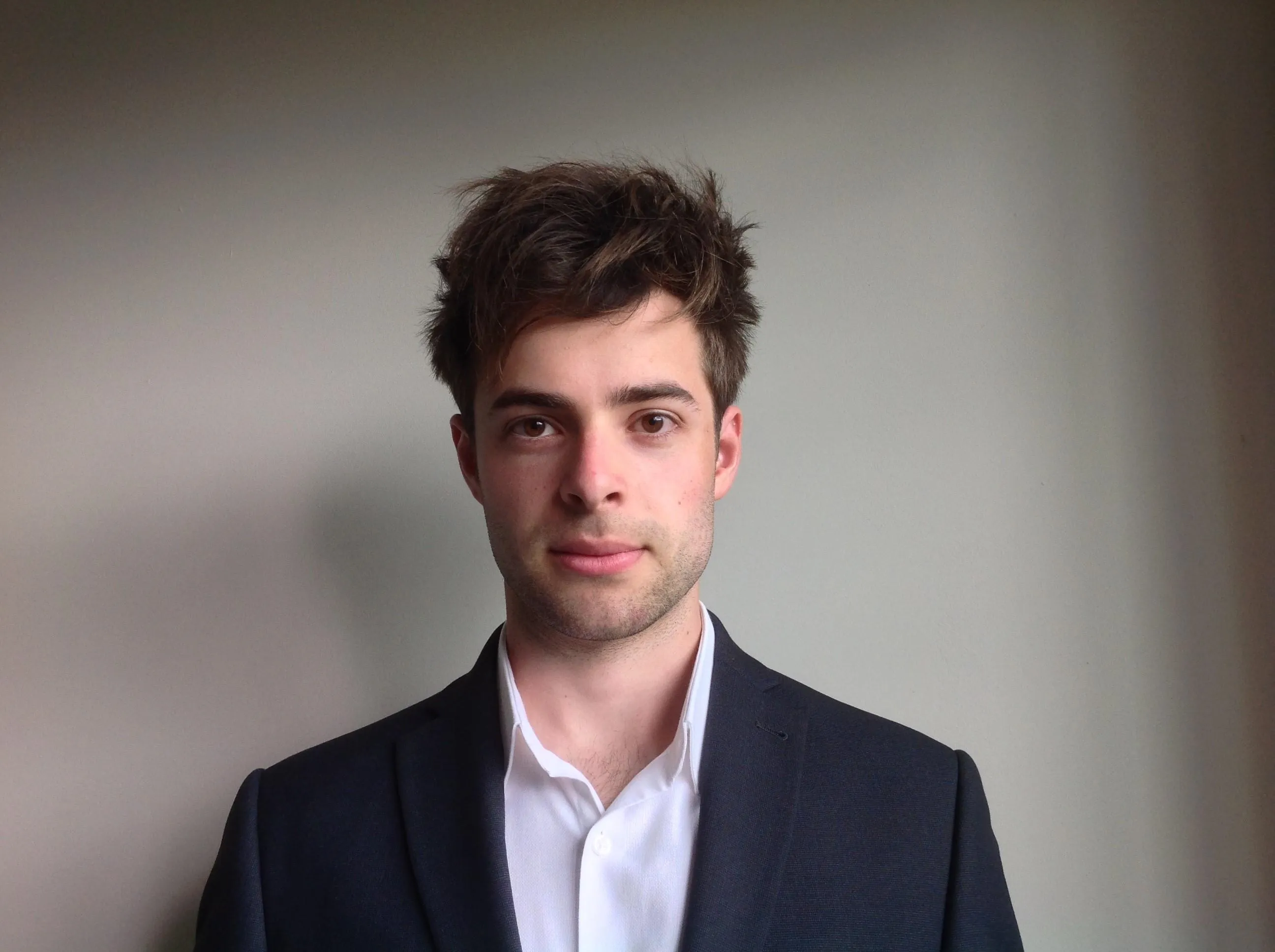15 March 2018
Student successes at Soyoye Technology Innovation Scholarships
Five start-ups from the King’s20 Accelerator programme with links to the Faculty of Natural & Mathematical Sciences have won a 2018 Soyoye Technology Innovation Scholarship. These scholarships are awarded by Babatunde Soyoye, a King’s engineering alumnus, to support the brightest tech talent at King’s. Each start-up pitched to a panel of judges, including Babatunde Soyoye, for investment.

Five start-ups from the King’s20 Accelerator programme with links to the Faculty of Natural & Mathematical Sciences have won a 2018 Soyoye Technology Innovation Scholarship. These scholarships are awarded by Babatunde Soyoye, a King’s engineering alumnus, to support the brightest tech talent at King’s. Each start-up pitched to a panel of judges, including Babatunde Soyoye, for investment.
Deepfinity, founded by Arthur Zaragaryan, BSc Computer Science with Robotics, and Luca Mozzo, BSc Computer Science with Intelligent Systems, was awarded £4500.
Deepfinity has developed a Parcel Tracker which uses Optical Character Recognition (OCR) technology to extract tenants’ data from parcel labels. This technology allows receptionists and mailroom staff to quickly scan parcels using a phone camera, which automatically detects and notifies tenants that their parcels have arrived. All the data is entered by scanning the parcel label using the built-in smartphone camera, and no manual information needs to be entered as with a competing software. Arthur explains: ‘This makes our system the most time efficient.’
Luca explained: ‘The original idea came from the fact that Arthur and I lived collectively for 5 years in student accommodation, and we experienced the disorganisation and efficiency in parcel management ourselves. We then moved our focus on to the Optical Character Recognition (OCR) technology that differentiates our product from others, and thought of new possible applications in the market.’
Arthur, who has a history of entrepreneurship and setting up businesses since high school, said: ‘Over the last year we have researched and developed new methods for neural networks to train themselves and are preparing to launch our first product soon.
‘Our company is attempting to solve one of the final barriers between the physical and digital world: the ability to digitalize handwritten text. We believe that current industry implementations of optical character recognition are effective on printed characters, but struggle to recognize handwriting, creating a major bottleneck in many businesses’ applications.’

Mila, founded by Razvan-Gabriel Geangu, BSc Computer Science with Management, was awarded £2000.
Razvan is one of Europe’s hacking prodigies with over 480 hours of no sleep and 20 hackathons won in his first two years of university. He also won a place on the global entrepreneurship and innovation bootcamp by MIT and has always been passionate about technology and enhancing our life using it, saying: ‘It is really important that if you have the ability to empower others, to use it!’
Razvan explained that: ‘Mila’s mission is to empower the computer to understand human behaviours and ultimately improve people’s jobs. We serve businesses and developers, who want to empower the machine to understand the physical world, human behaviour and activities using vision. Our platform is open to other developers to build applications and offers contextual understanding through Visual Recognition using Deep Learning algorithms. We offer a platform that can be trained to understand and analyse any human activity or behaviour. Customers have the power to visualise statistics in real time or visualise them as a comprehensive report of the entire video capture. The report includes personalised text, processed using Natural Language Processing algorithms.’
‘We are very fortunate to be part of such a great community at King’s. The amount of support we received from the teaching staff and the Entrepreneurship Institute is tremendous. I could say that being part of the accelerator pushed my limits and I feel I accomplished even more than all experiences together through my first two years at university.’

Focus, founded by Lukas Ondrej, BSc Computer Science, and Kamil Ondrej was awarded £2000.
Lukas explained: ‘Focus is a task management tool that integrates directly into graphic design software like Sketch and Photoshop to radically improve designers', photographers', illustrators' and other creatives' productivity.’
Lukas, who has been involved in the Research Fellowship and Enterprise Awards said: ‘Being able to take part in the King's20 accelerator this year has been a massive opportunity which helped us shape our business tremendously.’
‘Being involved in software development and engineering has enabled me to apply my skills practically and create solutions to problems I faced. I also happen to have been involved in digital design for several years and seeing how graphic designers work has inspired me to work in the field of design tools and productivity. In the future, I envisage Focus integrating cutting-edge technologies including machine learning and computer vision to improve design workflows but also possibly blockchain once we delve deeper into the designer recruitment market.’
‘Winning £2000 at the Soyoye Tech Scholarship pitching competition allows us to keep innovating and growing our products at Focus. It's been an amazing event with so much energy and enthusiasm and I'm very grateful for the support we've received.’
The other winners included VEED, founded by Sabba Keynejad and Timur Mamedov, alumnus of BSc Computer Science, who were awarded £20,000, and Memento, founded by Michael Truong, alumnus PhD in Imaging Sciences & Biomedical Engineering, and Olga Kravchenko who were awarded £4500.
Professor Michael Luck, Executive Dean of the Faculty of Natural and Mathematical Sciences, commented: ‘I was hugely impressed at the quality of the pitches, and the commitment shown by the King’s startups to delivering their vision. More than anything, as Executive Dean of the Faculty of Natural and Mathematical Sciences (NMS), I’m also delighted and proud to see our NMS students among the competitors and winners. Congratulations to all of them, and thanks to Babatunde for his support.’
